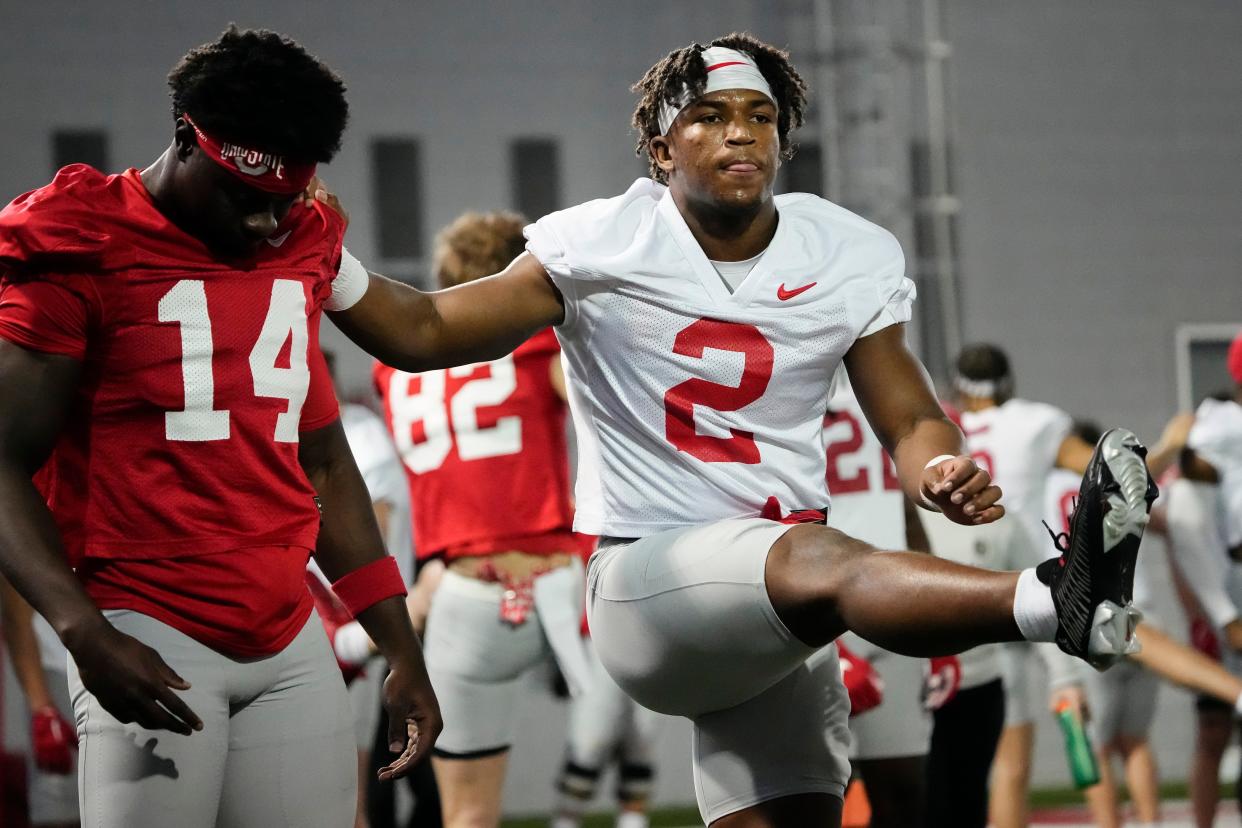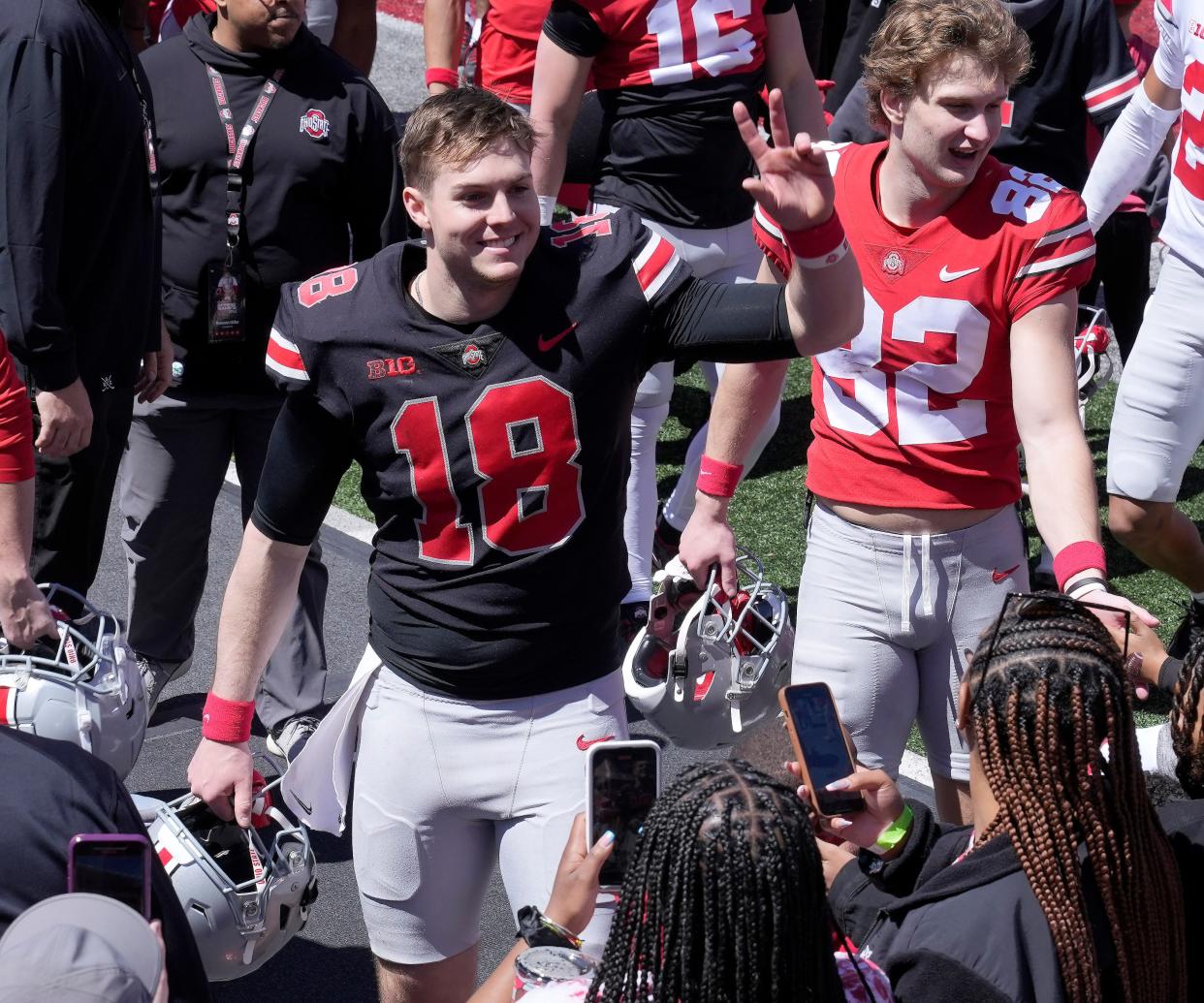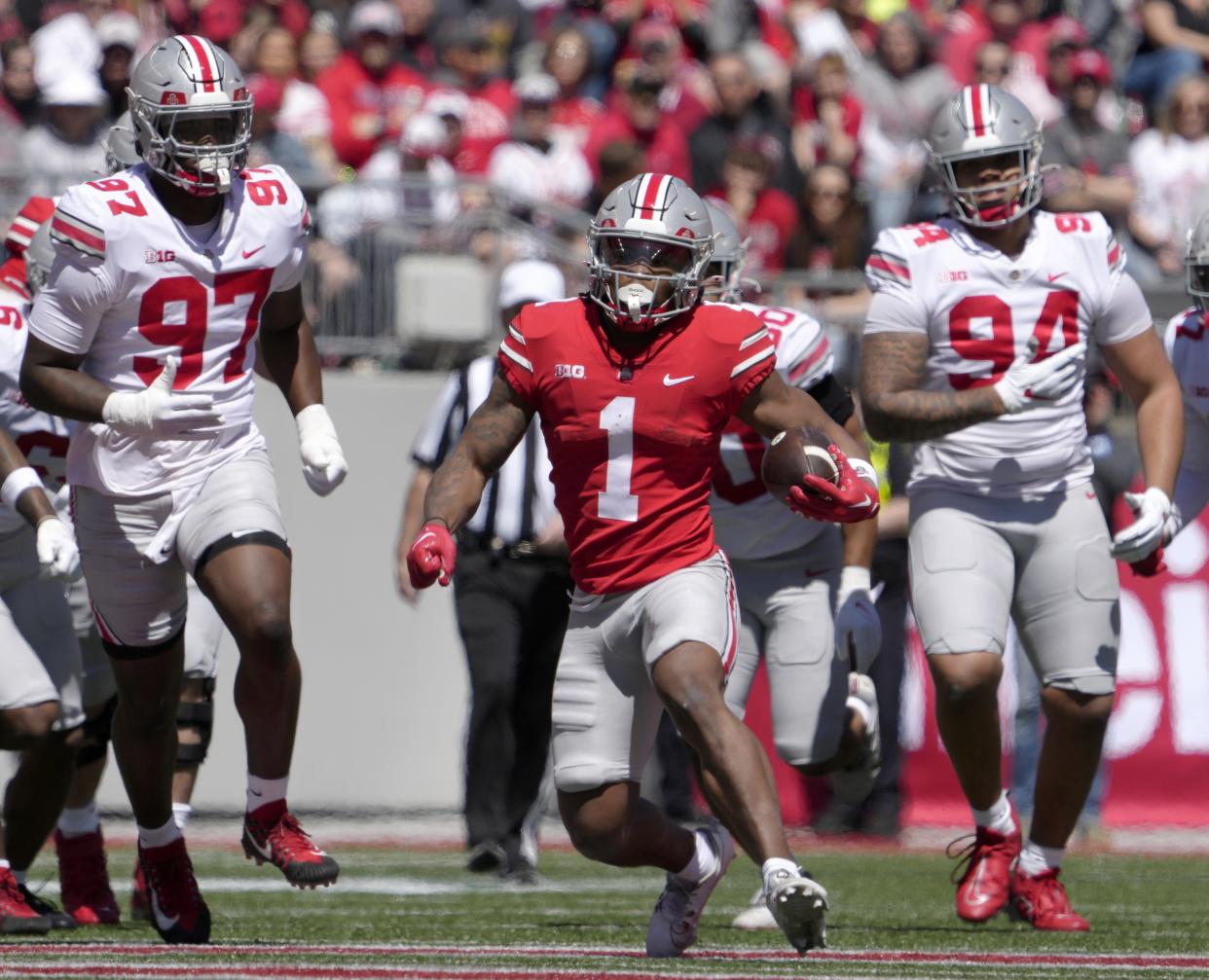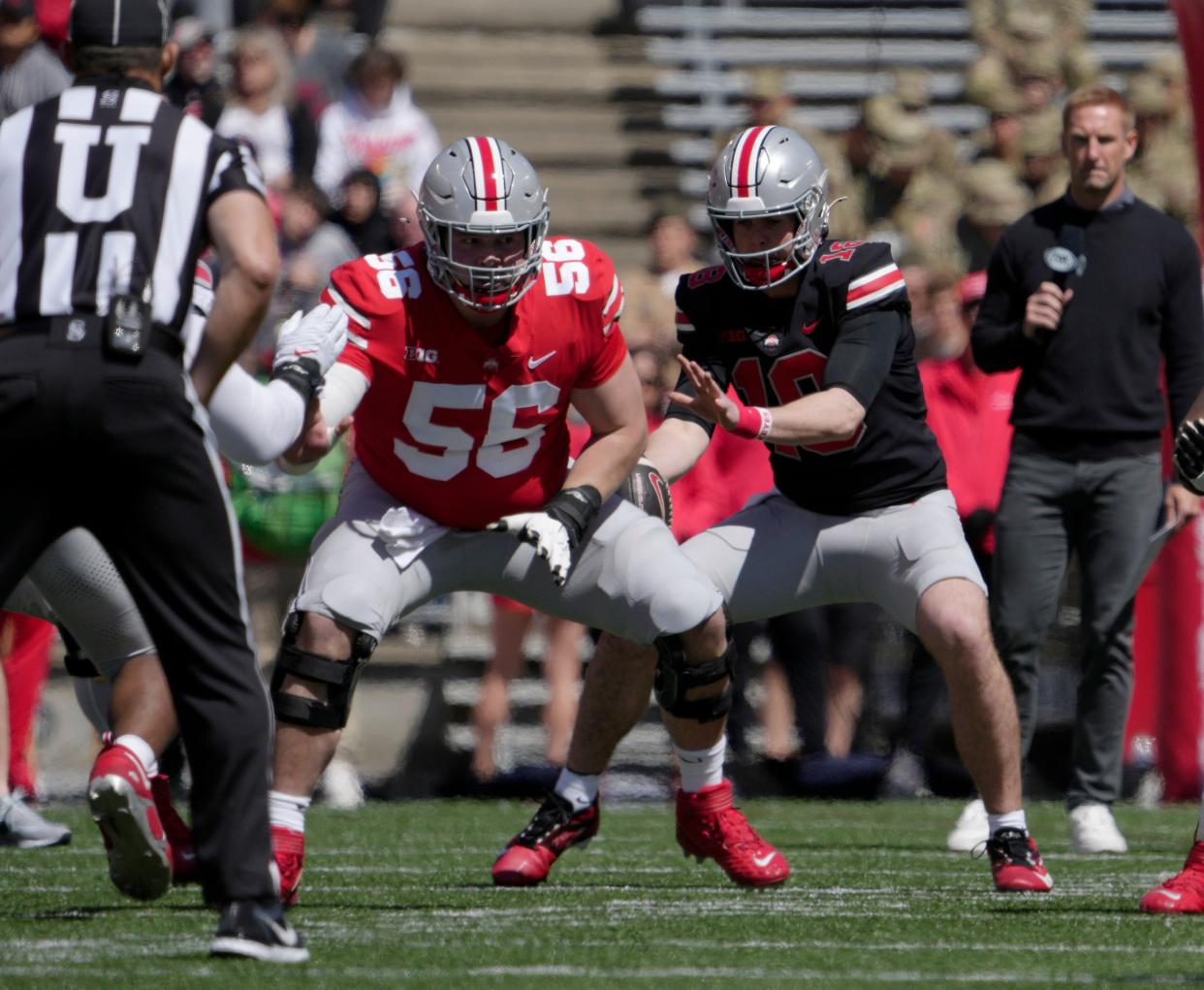Ohio State football NIL pay-for-play cheapens work it takes to win championships: Oller
Call it that bothersome floater in the eye you see only when focusing on it. It’s always there, which means you learn to live with it, because there’s not much else you can do. Yet sometimes you still need to harangue about it.
This is one of those times.
It’s taken a few years to self-diagnose my vision problem as it relates to college sports, specifically to football, and even more directly to Ohio State. The problem was always there, but lately has begun to blur things more substantially.

The issue is this: My clear view of what I enjoy most about college sports – the tradition, alumni/fan fervor, relative innocence of athletes, at least compared to the pros, but mostly the quest for national championships – is being clouded by a specific cataract linked to name, image and likeness.
To wit: using NIL to buy players to win national titles cheapens those titles.
Look closely, through the vitreous humor that actually isn’t so funny, and you can spot a serious problem, namely that college teams can, within the rules, buy their way to championships by enriching their rosters through payouts to recruits and portal transfers. Much like the biggest-market professional teams, schools that spend the most on NIL set themselves up to hoist trophies. Ohio State Yankees, anyone? Michigan Dodgers? Manchester United Crimson Tide?

Ohio State football recently dipped into the transfer portal by digging into its deep pockets to land a quarterback from Kansas State, a center from Alabama and a running back from Mississippi. And don’t forget the $2.1 million going to offensive coordinator Chip Kelly, who left Los Angeles to serve as Ryan Day’s sidekick. (As one shell-shocked neutral observer put it: “For the Buckeyes, UCLA’s head coach will call a play where Alabama’s center snaps the ball to Kansas State’s quarterback, who hands it to Mississippi’s running back. College football is crazy.")
Many may wonder, “Is buying titles so bad?” Yankees fans don’t think so. When George Steinbrenner was purchasing the best players, happy fans of the pinstripes attributed the complaints of smaller-market teams to jealousy. The issue wasn’t that the Yankees' front office was spending more, but that losing teams failed to invest in their product.
I would counter, perhaps naively, that college sports are different. Or should be. I can’t perfectly explain why I feel that way. Maybe it’s because after decades of being told by college administrators that college tailbacks, point guards and slugging first basemen are student-athletes, I came to believe them. At least a little. I wanted to embrace the sweetness of amateurism, despite money having soured the designation long ago.
Whatever the reason, my feelings changed with the collateral damage created by NIL. Now, when a cash cow wins a national championship, at least part of me thinks, “Well, of course. Just check the receipts.”
Much already has been written about NIL, both positive and negative. On the positive side, college athletes for too long have been treated like unpaid employees of the university system, though with benefits. Schools have made billions off athletes’ names, images and likenesses via performance, while offering the benefits of education through paid scholarships.

Think of it this way: What if your employer paid for your health care but not your salary. Crazy, right? Well, college athletes are finished being subjected to such shenanigans.
As for the negative, when NIL was in its infancy, before the birthing of collectives run by boosters and FOPs (Friends of the Program), it existed for the right reason. Athletes finally would be compensated for who they are as it connects to what they do. Then greed and the unquenchable thirst for more kicked in, including enticements that amount to pay for play. It’s not just collectives; anyone can pay a high school recruit (depending on state laws) or current college athlete to sign with or transfer to the college of the bag man’s, er, donor’s choosing.
That does not guarantee the school with the most NIL spending money wins, just as there is no promise every World Series title goes to the Yankees, who have gone without one since 2009. What the current NIL free-for-all does guarantee, at least more than it once did, is the team that wins the title is seen as having bought it.

The rich getting richer is nothing new to college sports. See Ohio State, Michigan, Alabama and Notre Dame. It’s not all about the money, or else Texas A&M would win everything all the time. Some combination of tradition, large alumni bases, smart coaching hires, wealthy donors and emphasis on developing and maintaining a wildly successful football program contribute to continuing success.
What’s different is that money has more to do with it than ever. Before “NIL Gone Wild,” college football was about the journey. It was about the week-to-week trek toward bowl eligibility. About months of relationship-building in which the hardest-working coaches enjoy the fruits of their recruiting labor. The journey ended in celebration or heartbreak, but you came by it honestly. No cutting corners to win championships.
Now? Dollar signs are the drive-thru window by which titles are collected. Hold out your hand as you pass by. College sports are still fun to watch. The championships still count. They've just been cheapened.
Get more Ohio State football news by listening to our podcasts
This article originally appeared on The Columbus Dispatch: Ohio State sports titles will feel cheaper because of NIL pay-for-play
